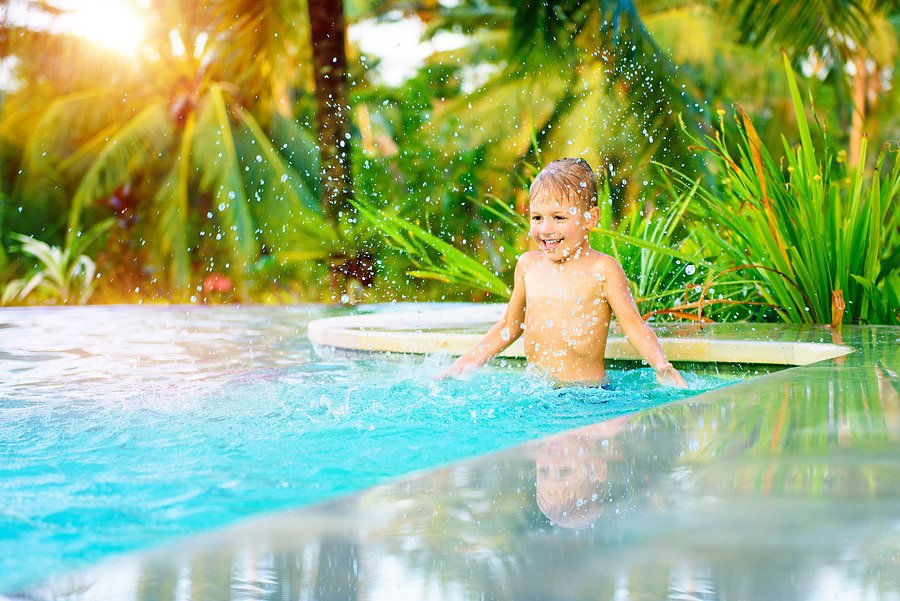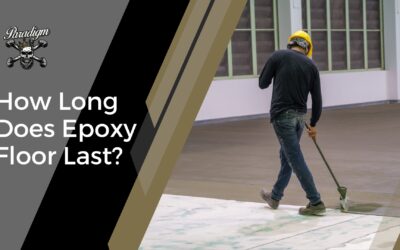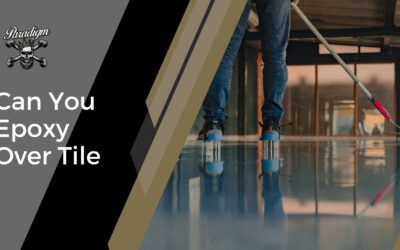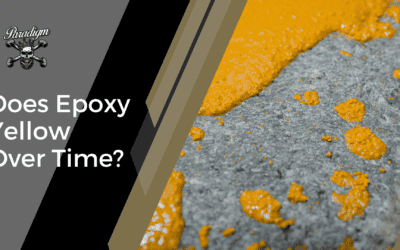In Central and South Florida, people gather around pools, swim, and have fun with friends and family. That’s why swimming pools here should be inviting and secure for all age groups, swimmers and non-swimmers alike. But pool decks are exposed to a lot of uncertainties and damaging factors that impact their lifespan, luster, and safety. Here are the common challenges that face pool deck surfaces and also how to avoid them. Here’s a hint, you probably want to choose a professional polished concrete contractor because you know they have the right equipment and know how to work with the concrete.
Table of Contents
Frequent Wear and Tear
Pool decks are busy places during summer. They get endless foot traffic, a lot of water splashing, dust, dirt, grime, and more. These factors end up causing damages like cracks and microbial growth. These issues progress into bigger problems that, if left unattended, make the pool unsafe and nonfunctional with time.
Moisture Damage
Most of the fun swimming styles splash water all around the pool deck. So, the pool deck will be wet most of the time increasing the chances of moisture-induced damage. The moisture doesn’t just affect the surface but could also seep into the subfloor and the foundation to compromise the integrity of the entire structure. Here are moisture damages you can expect:
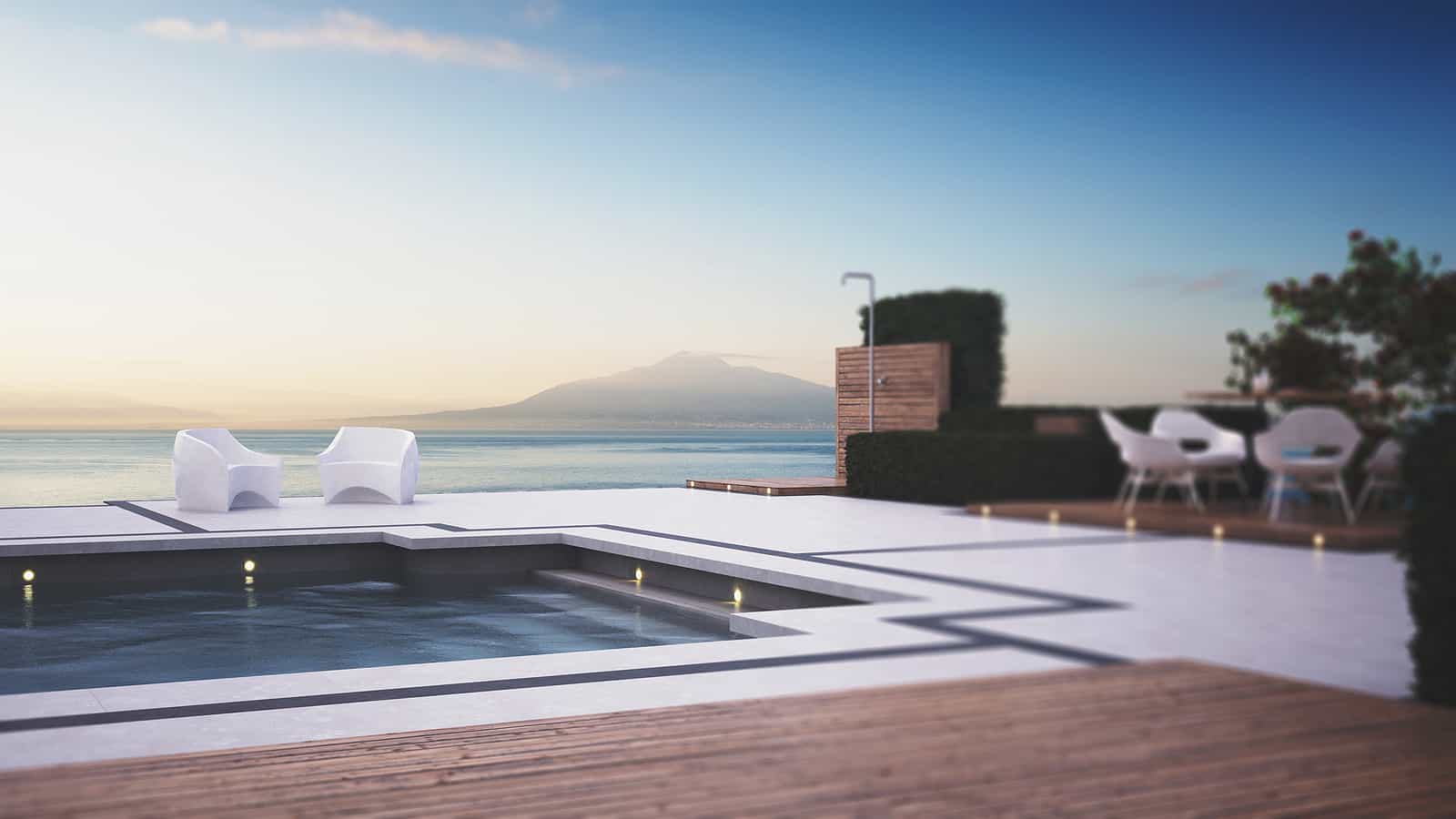
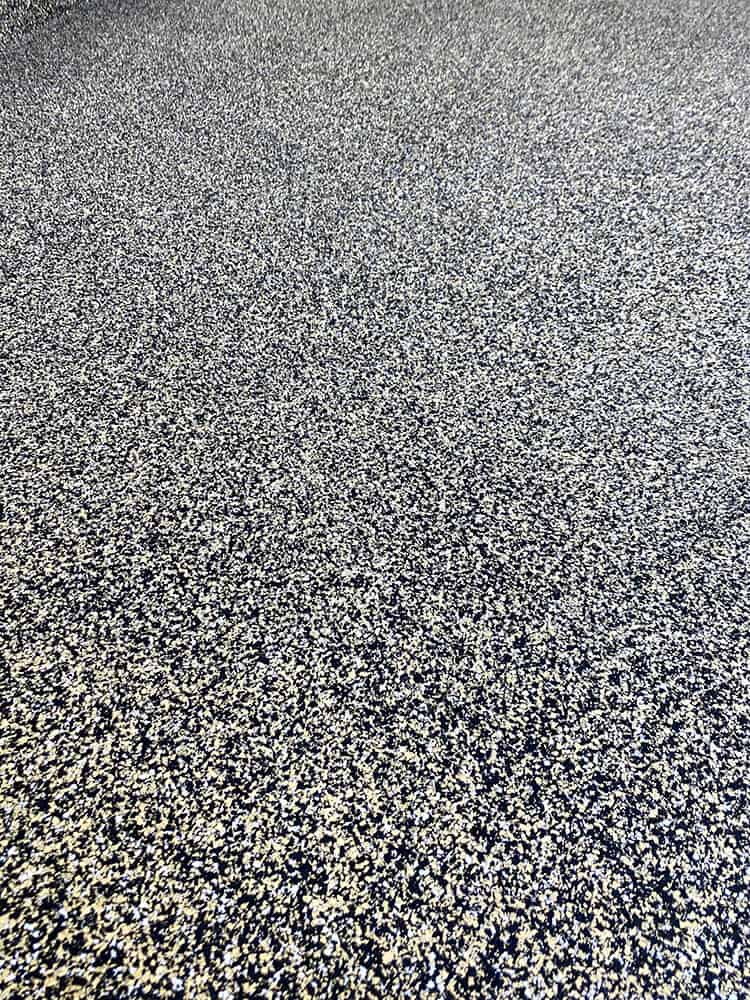
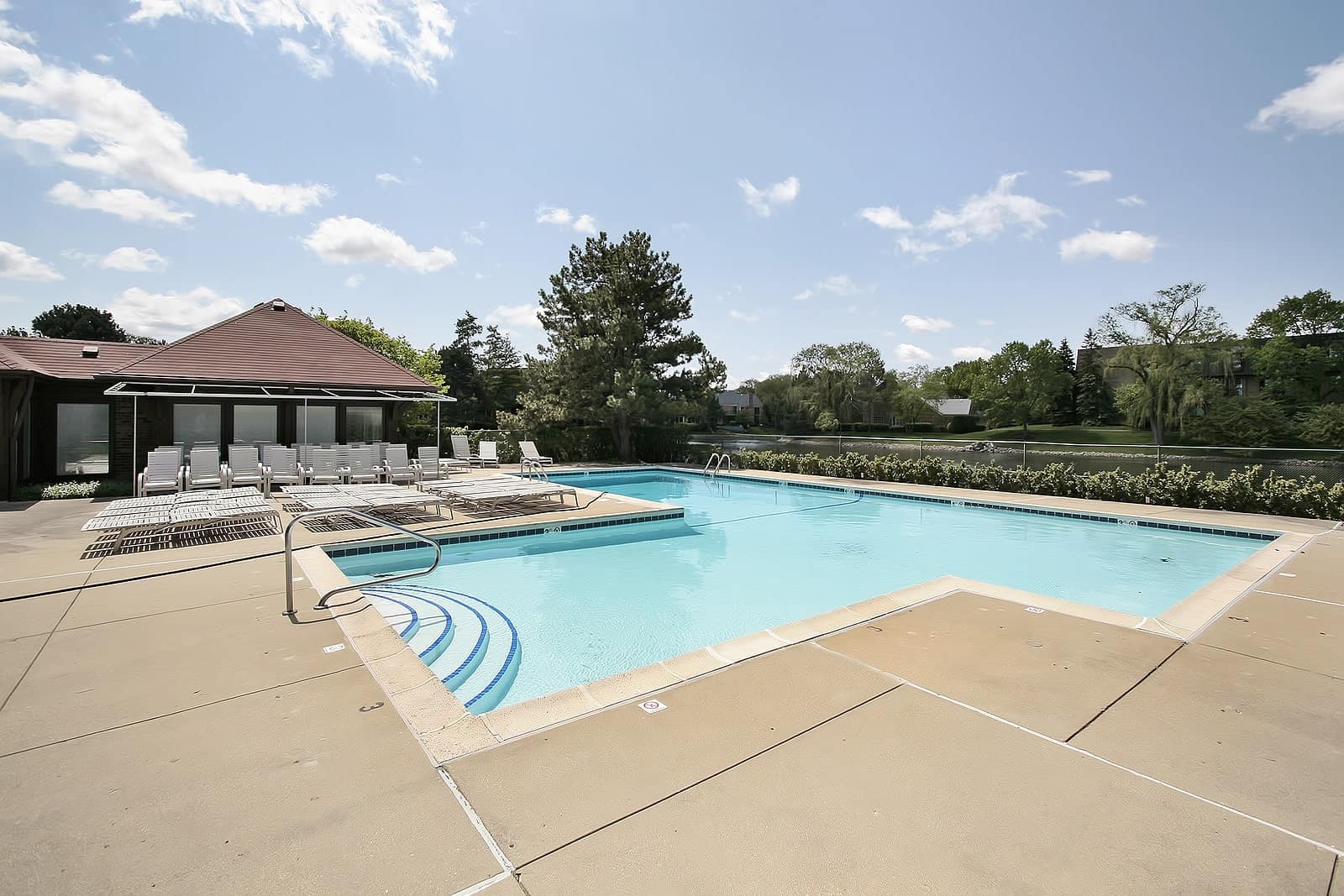
Mold and Mildew
Mold and mildew grow where moisture is trapped. Why is this bad? When you continually expose yourself to mold and mildew, it causes illnesses like asthma, respiratory infections, and triggers allergies as well. Your pool surfaces will also discolor and lose their radiance.
Structural Rot
If you are using organic surfacing materials for your pool deck, prolonged exposure to water causes them to decay. With rotting, your pool is rendered nonfunctional and unsafe after a while.
Compromised Foundation
Unattended trapped water on the pool deck can penetrate deep into the foundation of your pool and cause irreversible damage. Large cracks and sinking are some of the common signs that your pool foundation is compromised.
Exposure to High UV Radiation
Concrete, masonry, and wood are susceptible to ultraviolet rays. Initially, your surfaces will have slight color variations and a dull look. But with weather changes and exposure to moisture, deterioration begins. If you don’t treat your pool deck early enough, concrete surfaces start to breakdown, then wood decays and cracks follow.
Constant Cleaning and Periodic Maintenance
Pool decks are outdoor structures that collect dirt, dust, grime, food particles and develop mold, mildew, and scuffs. All this requires constant cleaning and periodic maintenance to always keep the pool in good shape.

What Should You Consider When You’re Choosing a Pool Deck In Florida?
Wet and damp environments like the pool deck pose several challenges when it comes to choosing surfacing options. You’ll need to go with a flooring alternative that’s resistant to mildew, mold, rot, and the daily wear and tear of weather changes as well as human traffic.
Organic or plant-based materials like wood are often not the best option because they decompose easily when exposed to water.
Inorganic surfacing materials like tiles, on the other hand, don’t disintegrate in similar circumstances but some fail when it comes to traction. Still, some materials are both organic and inorganic based, which makes this criterion ineffective in getting the right surfacing for pool decks.
Factors to consider when choosing a pool deck safety surfacing.
Surface Traction
To choose a pool deck surface that everyone will enjoy and stay safe throughout, you want a surfacing solution that is anti-skid both during dry and wet seasons. While materials like concrete offer the best traction in dry environments, they get slippery when continually exposed to moisture and foot traffic. Slippery floors can be particularly risky to kids and the elderly. Rubber pool decking surfaces are anti-skid in wet and dry conditions and thus a better option. You can also get rubber pool deck surfaces with extra grip.
Durability
Swimming pools are exposed to heavy foot traffic, mobility aids for the elderly, water splashes, UV rays, and weather changes. All these factors cause wear and tear over time, making durability a top consideration when choosing pool deck surfacing solutions. Your surfacing solution should be resilient enough to handle all the abuse. A wrong choice of pool deck flooring will lead to dull and unattractive floors that attract frequent repair works and high maintenance costs.
Moisture Resistance and Waterproof
A material that allows moisture to seep into the subfloor or foundation can cause irreparable damage. Your pool deck floor should not just be waterproof but must also be moisture resistant.
Resistant to Algae, Bacteria, and Fungi
A swimming pool should be hygienic and safe for the users. Because of this, you must choose a surfacing material that’s resistant to microbial growth, is safe to walk and lie on. Pool deck surfacing options like brick, limestone, and travertine can easily develop algae, bacteria, and fungi when exposed to moisture. Wood also grows mold and mildew if you don’t maintain it adequately. You should be absolutely sure that you have time to maintain your pool to enjoy its value. If not, you are better off choosing rubber rock pool decking because it’s resistant to moisture and microbial growth.
Comfortable to the Underfoot
Most people walk barefoot on pool decks. So the material you choose for surfacing your pool should be slip-resistant and easy to the underfoot. Stone and brick surfaces will provide rough surfaces that are good for traction but can be too tough to walk on. The last thing you want is an uncomfortable surface and blistered feet when trying to relax and have fun. Choose a surfacing solution that’s non-skid and comfortable to use.
Easy to Clean and Maintain
Summer means endless traffic at the swimming pool. And that translates into the build-up of dirt, dust, grime, food spills, and remains. If you skip any day without cleaning, you expose the beauty and quality of your swimming pool to damages. Because of this, you want a surfacing material that is easy to clean and maintain without losing its luster.
Aesthetic Appeal
Whether a swimming pool is for residential or commercial use, it must look good. After all, a pool should be an inviting and pleasant place to be. At Paradigm, we uses RubCorp & Rubaroc as each Rubaroc rubber granule is colored all the way through making it a color-fast and versatile material. We offer several color mixes that are easy to choose from, or we can custom create a mix perfect for your needs. Get in touch with us and we will help you choose your design!
Comparison of Our Top Pool Deck Surfacing Materials
Stone
There’s a wide range of stones that can surface a pool deck. Some of the common ones include granite, limestone, and sandstone. You get a variety of earthy color tones with this material.
Stone Pool Deck Surfaces
There’s a wide range of stones that can surface a pool deck. Some of the common ones include granite, limestone, and sandstone. You get a variety of earthy color tones with this material.
Pros of Stone Pool Decks
- Provides durable surfaces
- Look stylish and a great pool deck decor thanks to the earthy hues
- Rough texture that makes slip-resistant surfaces perfect for pool decks
Cons Of Stone Pool Decks
- Requires adhesives and grout for installation which raises the costs
- Stones like limestone are costly to maintain because they are porous
Engineered Wood Pool Decks
Engineered wood is a durable and colorful decking solution. As long as you wipe off water spills and splashes, it can serve several decades with proper maintenance.
Pros of Engineered Wood Pool Decks
- They come in a wide range of colors and patterns that are aesthetically appealing
- Comfortable on the underfoot and cozy to lie on
- Doesn’t absorb much heat during summer
Cons Of Engineered Wood pool Decks
- Requires constant maintenance to avoid water damage
- Might rot, or develop mildew and mold
- Frequent sealing is necessary to avoid slipping
- Exposure to long hours of sunlight compromises its quality
Brick Pool Decks
Bricks are durable and great for constructing all outdoor structures including pool decks. They have been around for years and have a history of success in construction.
Cons Of Brick Pool Decks
- Are very slippery when they contact water
- Require constant cleaning and maintenance
- They gather mildew and moss because of their porous nature
Cons Of Brick Pool Decks
- Are very slippery when they contact water
- Require constant cleaning and maintenance
- They gather mildew and moss because of their porous nature
Ceramic Tiles On Pool Deck Surfaces
Ceramic tiles are great performers as pool deck surfaces because they respond well to water pudding. Their biggest downfall is their grout seams that can seep water to compromise the pool’s subfloor.
Cons Of Ceramic Tile Pool Decks
- Very slippery which raises safety concerns for the user
Cons Of Ceramic Tile Pool Decks
- Very slippery which raises safety concerns for the user
Concrete Pool Decks
Concrete is one of the most popular surfacing solutions out there because it comes in several colors and is cost-effective in the long run. Most pool decks use it.
Pros of Concrete Pool Decks
- Economical to install and maintain
- Durable and can possibly last a lifetime with proper maintenance
- Does not heat up during summer
- Easy to clean and maintain
Cons Of Concrete Pool Decks
- Not slip-resistant and can potentially cause serious falls and injuries
- Tough when you step on bare feet
- Concrete is porous, can crack over the years with weather changes
- Demands an extra cost to texture and stamp it to make the surface anti-slip
Rubber Pool Deck Surfaces
Rubber surfacing is a better pool surfacing than most because it’s waterproof, non-slip, easy to install, can stand heavy foot traffic, absorbs shock, and is easy to clean, and requires little maintenance. Rubber pool deck also comes in a variety of beautiful colors and can be personalized to meet your decor needs. If direct sunlight is a concern in your area, go with UV protection rubber surfacing or resins that are UV stable.
Pros Of Rubber Pool Decks
- Safer surfacing solution for pool decks because it’s non-skid
- Very durable
- It doesn’t rot or develop algae, mold, and microbes
- Comes in an array of colors
- Easy to clean and maintain
Cons Of Rubber Pool Decks
- New installations have an unpleasant rubber smell that fades away with time
- Initial rubber pool deck installations are very costly
Premier Pool Deck Resurfacing Experts Florida
For the 65% of Floridians who don’t know how to swim but enjoy entertainment by the poolside, what you need is a safe and functional pool deck. At Paradigm, we pride ourselves on providing premier pool deck surfacing solutions and have a variety of solutions for you. From concrete staining, sealing, epoxy flooring, to pavers and travertine, you can trust us with your project regardless of its scope. We’ve continually had successful residential, public, and sports swimming pool deck and water park installations. We would be happy to talk with you about your pool and tackle your full remodeling project.

